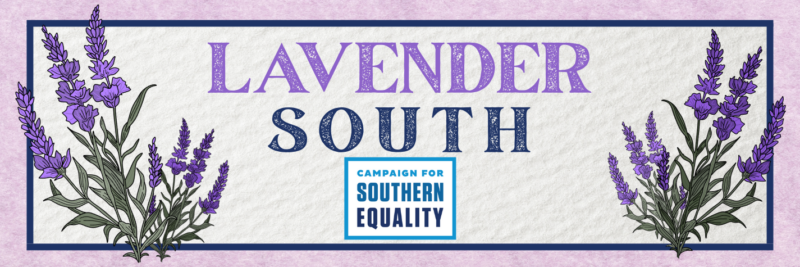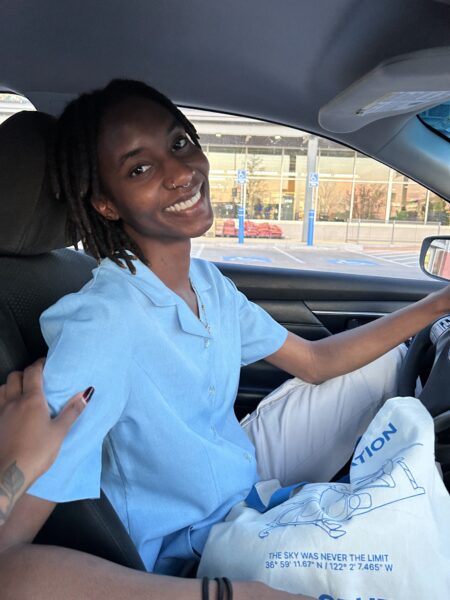
I woke up to an obscure link from my partner to a website reminiscent of early Internet Explorer. It read “A BILL TO BE ENTITLED / AN ACT.” A bill was introduced in my home state of Texas to make it a felony to identify as a sex that differed from that assigned at birth. I replied “oh. okay.” and forced my body into the shower. I didn’t mean to minimize the ramifications this bill has because of its existence. I didn’t wish to make sweeping statements that failed to acknowledge the harm that comes with such attacks. I was shit at history, but I knew enough to remember the anti-cross dressing laws of the late 1800s. I remembered stories of queer legends who’d be arrested dozens of times over because they refused to conform, pushed against police car hoods for wearing slacks to school. I knew that their inability to be squandered meant that this moment, too, wouldn’t eradicate a whole group of people. But I still worried that the distance between them and me was too great for me to survive.

I thought back to my time in D.C., walking the exhibitions of the National Museum of African American History. I found myself passing by the displays on the Civil Rights movement. It seemed to me that no matter how many times the subject was brought up, I found something overlooked and something mistold. Amongst the black and white photos popularized by the history books of my public schooling, my eyes caught the familiar faces of people like Dr. King and Joan Trumpauer Mulholland. I read the placard that gave ownership to jackets and buttons, bringing back a person who might’ve otherwise faded into oblivion with time. When I saw the section dedicated to The March on Washington, I stood eye level with an image of Bayard Rustin, the only LGBTQ+ person I knew of during this entire movement. I stopped and looked at his thick frames, his pressed to heaven suit, and wondered if this was all we had. Did LGBTQ+ history in a time of revolution rest on the shoulders of this one man? I know a simple Google search may have told me elsewise. I know a proper history class would have corrected this train of thought ages ago. But being raised in Texas and being Black meant I was never reflected in the historical narratives deemed important to commit to memory for state testing.
I circled back to the entry where one is greeted with a projected video that spoke about all the necessary components in making the movement a success. I was grabbed by the footage of Black women seated behind tables and standing in groups. After walking the entire exhibition floor, it seemed like the only space Black women had in the Civil Rights Movement was as support, regulated to the sidelines despite the instrumental work they had to do to ensure the prosperity of other members. I sat down on a viewing bench and found myself wanting to know more about these ladies. The men had photos, each affixed with their first and last names. They had pins and glasses saved for posterity’s sake. But the women had a video that seemed ephemeral, their entire contribution regulated to a seven minute tape.

All I could wonder was how many of them were lovers, raising one another’s children, sneaking touches in the kitchen, bumping baskets on their way to the market and unable to speak of their adoration for each other aside from small acts of care? How many of our freedom fighters were lesbians? Forced into marriages because what else was there? Or suppressed and erased from history because they were “found out.”
Our grandmothers, sweet on one another, bumping one anothers ends and mending their lover’s skirts. Sharing kisses in the kitchen, raising their children together. Walking to the stores side by side, baskets gently touching where hands could not. For my grandmothers in their churches, forced to be at war with themselves. For those who couldn’t escape together. For those who had to secretly mourn what they’ve lost without the space to grieve.
With Donald Trump back in office, it’s easy to become scared of the future of queerness in the South. Texas is one of the states known as a testing ground for new anti-LGBTQ+ legislation. Being queer, being Black, being a child of homophobic immigrant parents in the South requires more energy than I have on any given day. But when I close my eyes, the D.C. viewing bench becomes a church pew and the stills of Black women standing behind their daughters becomes its own type of mass. When I walked out of the museum, I asked for their guidance for the journey ahead. I asked for their courage and wisdom and just about as much goodness one could ask someone they knew not the name of.
Ismatu Gwendelyn said that when we forget our history, we easily succumb to defeat and become easier to control. The South is oftentimes written off as a lost cause despite being rich with queer history and the epitome of resilience against all odds. When I think about a future in the South, I think about the past that lent itself to the moment I am experiencing now. I think about the smiles shared between moments of protest, about open doors and dinner parties– because when one person had food, nobody else was gonna go without. I call back on the history of loving one another I learnt through those seven minutes and use it to fortify my Southern, queer future. Though the path ahead may not be certain, I rest assured in the fact that the community being cultivated now will ensure our future regardless of the people in office.

